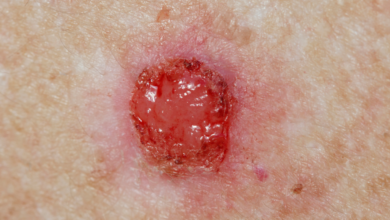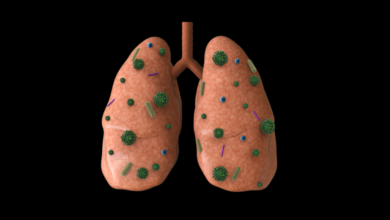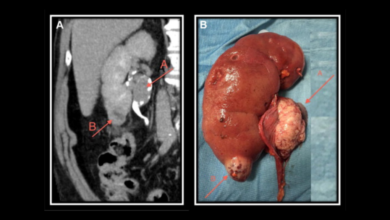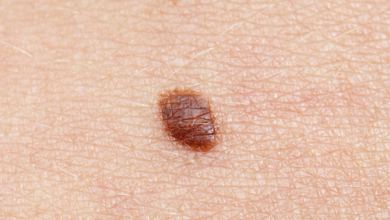Pancreatic Cancer: A Serious Health Concern
Pancreatic Cancer: Understanding the Risks and Symptoms

What is Pancreatic Cancer?
Pancreatic cancer is a type of cancer that develops in the pancreas, a gland located behind the stomach that produces enzymes to help digestion and hormones to regulate blood sugar levels.
Types of Pancreatic Cancer
The two main types of pancreatic cancer are:
- Pancreatic adenocarcinoma: This is the most common type of pancreatic cancer, affecting the cells that produce digestive enzymes.
- Pancreatic neuroendocrine tumors (PNETs): These tumors arise from the hormone-producing cells of the pancreas.
Symptoms of Pancreatic Cancer
Early-stage pancreatic cancer often doesn’t cause any noticeable symptoms. However, as the cancer progresses, symptoms may include:
• Abdominal pain: Often in the upper abdomen
• Weight loss
• Loss of appetite
• Jaundice (yellowing of the skin and eyes)
• Dark urine
• Clay-colored stools
• Nausea and vomiting
• Back pain
• Fatigue
• Blood clots
Causes of Pancreatic Cancer
The exact causes of pancreatic cancer are not fully understood. However, certain factors can increase the risk, including:
• Smoking: Smoking is a major risk factor for pancreatic cancer.
• Family history: A family history of pancreatic cancer can increase the risk.
• Chronic pancreatitis: Long-term inflammation of the pancreas can increase the risk.
• Diabetes: People with diabetes may have a slightly increased risk.
• Obesity: Being overweight or obese can increase the risk.
Who Can Suffer from Pancreatic Cancer?
Anyone can develop pancreatic cancer, but it is more common in older adults.
Diagnostic Tests for Pancreatic Cancer
To diagnose pancreatic cancer, a doctor may use a combination of tests, including:
• Blood tests: To check liver function and for tumor markers.
• Imaging tests: CT scans, MRIs, and ultrasounds to visualize the pancreas and detect any abnormalities.
• Endoscopic ultrasound: A thin tube with a camera and ultrasound probe is inserted into the esophagus and stomach to examine the pancreas.
• Biopsy: A small tissue sample is removed and examined under a microscope to confirm the diagnosis.
Stages of Pancreatic Cancer
The staging of pancreatic cancer helps determine the extent of the disease and guides treatment decisions. The most common staging system is the TNM system, which considers the size of the tumor (T), the spread to nearby lymph nodes (N), and the presence of distant metastases (M).
Treatment of Pancreatic Cancer
The treatment for pancreatic cancer depends on the stage and type of cancer, as well as the patient’s overall health. Common treatment options include:
• Surgery: To remove the cancerous part of the pancreas.
• Chemotherapy: To kill cancer cells throughout the body.
• Radiation therapy: To kill cancer cells with high-energy rays.
• Targeted therapy: To target specific molecules involved in cancer cell growth.
Diet and Pancreatic Cancer Prevention
While a specific diet cannot guarantee prevention of pancreatic cancer, a healthy diet can contribute to overall health and reduce the risk of certain risk factors, such as obesity and diabetes. Here are some dietary recommendations:
• Maintain a healthy weight: Obesity is a risk factor for pancreatic cancer.
• Limit red and processed meat: Consuming too much red and processed meat can increase the risk of certain cancers.
• Eat a balanced diet: A diet rich in fruits, vegetables, and whole grains can help.
• Limit alcohol consumption: Excessive alcohol consumption can increase the risk of pancreatic cancer.
Overall Survival Rate of Pancreatic Cancer
The overall survival rate for pancreatic cancer is relatively low. However, early detection and timely treatment can improve the prognosis.
Doctor to Consult
A gastroenterologist or a surgical oncologist is the best doctor to consult for pancreatic cancer.
Diseases Associated with Pancreatic Cancer
Pancreatic cancer is often associated with other health conditions, including:
• Chronic pancreatitis: Long-term inflammation of the pancreas can increase the risk of pancreatic cancer.
• Diabetes: People with diabetes may have a slightly increased risk of pancreatic cancer.
How to Prevent Pancreatic Cancer
While there’s no guaranteed way to prevent pancreatic cancer, the following strategies can reduce the risk:
• Avoid smoking: Smoking is a major risk factor for pancreatic cancer.
• Maintain a healthy weight: Obesity is a risk factor for pancreatic cancer.
• Limit alcohol consumption: Excessive alcohol consumption can damage the pancreas.
• Regular check-ups: Regular check-ups can help detect any abnormalities early on.





